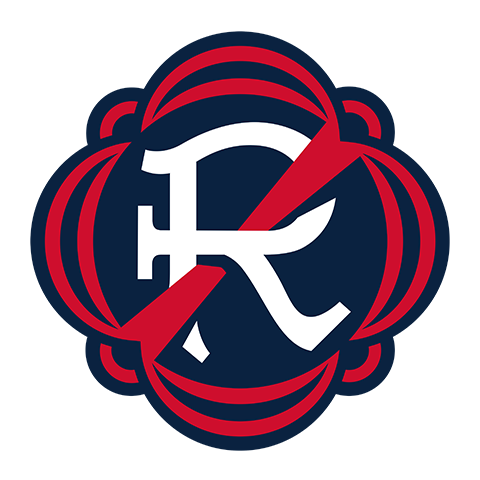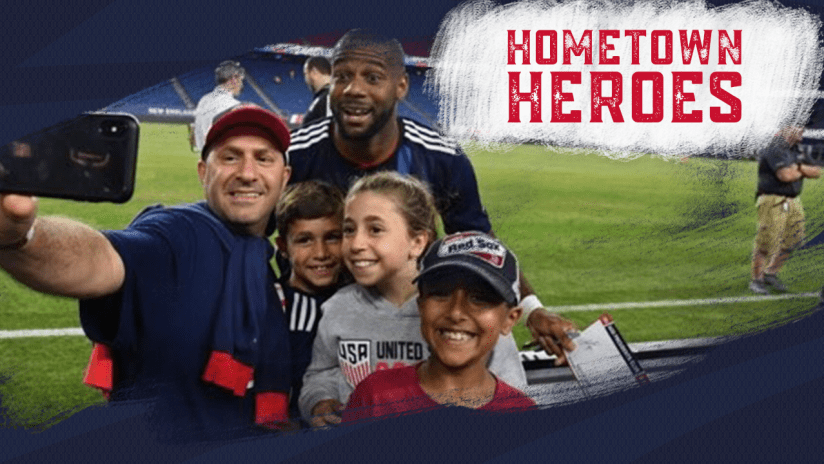FOXBOROUGH, Mass. – Like many of his fellow season members, Toni Choueiri desperately misses the New England Revolution. He misses the familial feel of a Saturday night at Gillette Stadium. He misses tailgating with his wife, children, and friends. He misses the sights and sounds of the game.
And like many of his fellow season members Choueiri is trying to stay connected to his beloved club any way he can, while at the same time practicing the safe social distancing guidelines that have come to define so much of our everyday behavior.
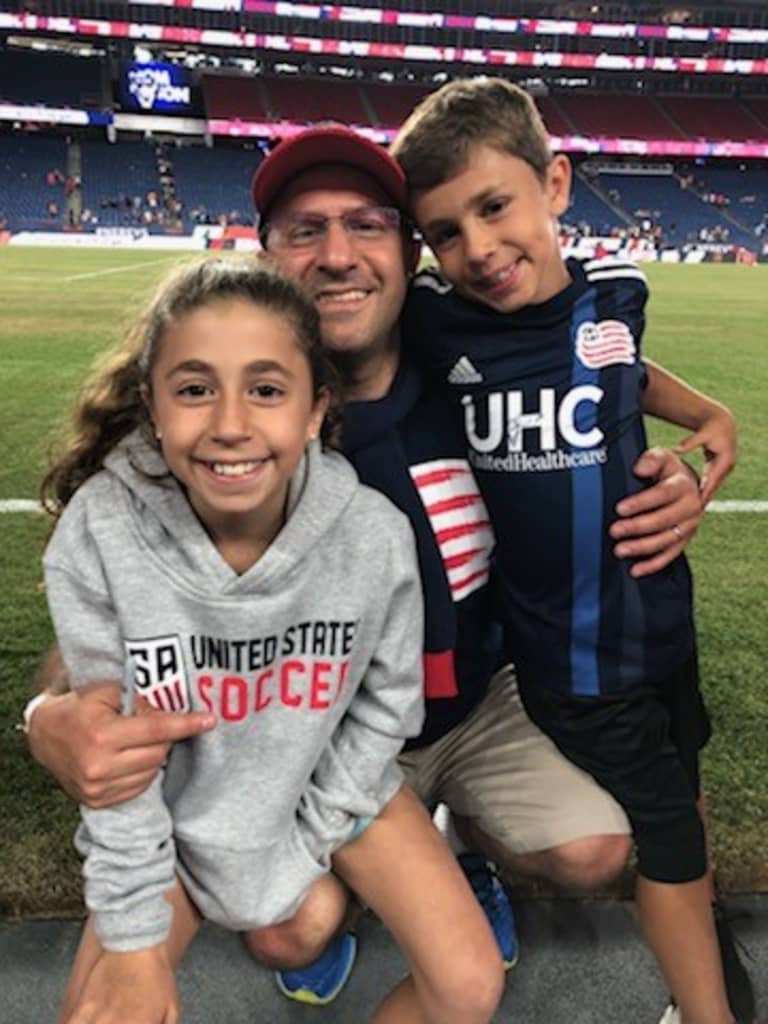
“On a personal level, especially with my spouse and my children, being at home and missing the Revs games, we try to play a bit of soccer in the backyard, but really, that’s not the same,” said Choueiri. “You can watch some of the games that are replayed again, but definitely it’s not the same.
“We’re living in the hope that this will soon end. If not, then we have to adjust as we go. There are no rules.”
Choueiri is, of course, referring to the COVID-19 pandemic that has so drastically altered our reality, and he’s uniquely qualified to speak on the topic. That’s because Toni Choueiri is, in fact, Dr. Toni Choueiri, a senior physician and the Director of the Lank Center for Genitourinary Oncology at the Dana-Farber Cancer Institute, fighting COVID-19 on the frontlines in the city of Boston.
Our lives have changed radically in recent months, but those changes have hit hardest for medical professionals, who’ve had to make critical adjustments at breakneck pace.
Dr. Choueiri, who also serves as the Jerome and Nancy Kohlberg Chair and Professor of Medicine at Harvard Medical School, is used to wearing many hats, but he’s primarily interested in developing novel therapies and biomarkers for several different types of genitourinary cancer. He’s heavily involved in research focused on epidemiology, diagnosis, and treatment outcomes.
Much of that research, however, has been put on hold as resources (including healthcare workers themselves) have been shifted to deal with COVID-19.
“We have some of our research on hold,” said Dr. Choueiri. “Some of the labs are closed, some of the experiments that are not vital are on hold, because we have to practice social distancing, and a lot of physicians are deployed to clinical duties now. But every day, things change.”
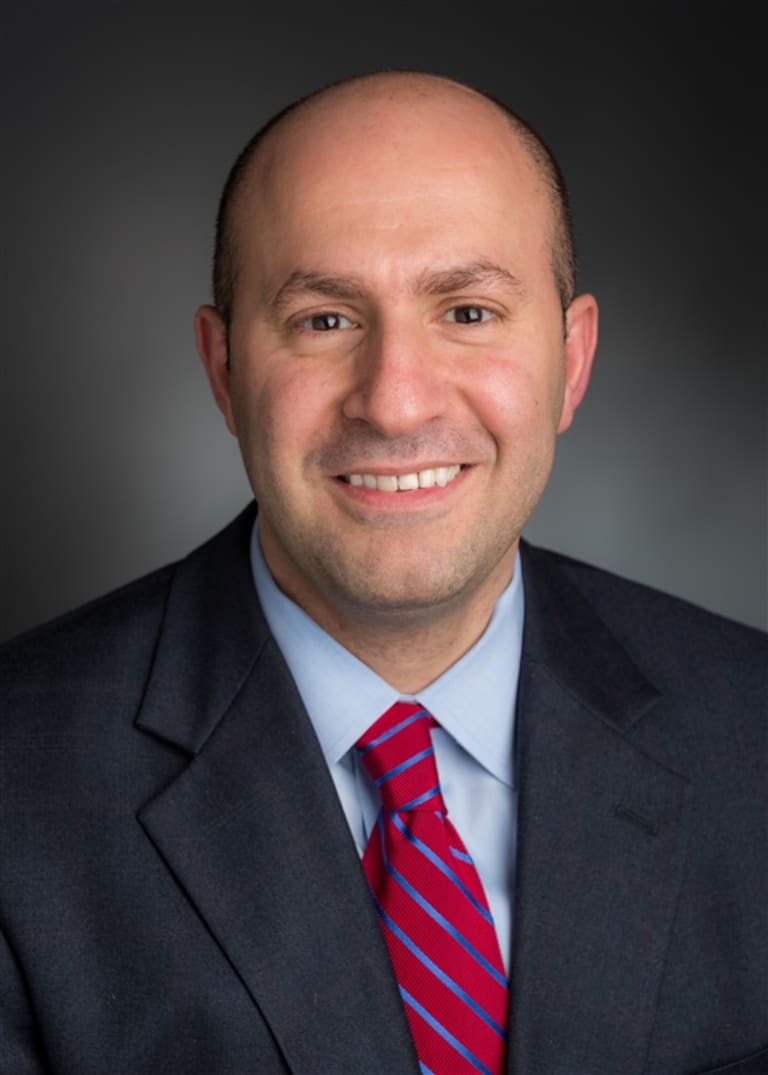
That includes Dr. Choueiri, who spoke for this story shortly after completing a shift on the COVID-19 service team, treating oncology patients who have either been diagnosed COVID-19 positive, or who are suspected of being COVID-19 positive.
“Usually these patients are admitted at our Dana-Farber Cancer Institute Hospital, and at Brigham and Women’s Hospital, and we care for them,” said Dr. Choueiri. “I have a team. So I’m in scrubs (today). I go around, and in the afternoon I go to my office, and many times I have to go back to the hospital to care for them.”
For these cases, Dr. Choueiri highlighted the importance of Personal Protective Equipment (PPE), showing off a face shield he’d acquired that day (“I’m going to guard it with my life,” he said) and noting that his N95 mask was housed in a locker for safe keeping.
Dr. Choueiri also voiced his appreciation for the Kraft family, which used their plane to deliver 1.2 million N95 masks from Shenzhen, China, to Massachusetts back in early April.
Those types of supplies are essential for healthcare workers on the frontlines – like Dr. Choueiri – treating patients who must be admitted to the hospital, but perhaps the biggest change in recent months has been the amount of patients now receiving consultations entirely online.
“We used to do things one way, and suddenly, out of the blue, we had to do it a different way, while always putting the patient’s interest and the patient’s well-being first, as well as our employees and our people,” said Dr. Choueiri, noting that within 1-2 weeks, 90 percent of Dana-Farber employees were working virtually. “We transitioned many of our patients into a form visit – virtual visit – and we kept some, especially the ones coming for clinical trials, experimental treatment, and for important face-to-face encounters.
“This is not simple, because telemedicine and telehealth, at the state level, at the local level – how do you do a form visit, how do you do a Zoom visit like we’re doing? But Dr. Andy Wagner and his team took it to the next level in record time.”
Whether treating patients in-person at Dana-Farber or via telemedicine, Dr. Choueiri is – like so many healthcare workers across the country – working long, stressful hours, while putting his own personal safety at risk for the benefit of others.
But putting the well-being of others first is just what Dr. Choueiri does.
“The hours are dictated not by us – they’re dictated by our patient need and, sadly, by the virus,” he said. “If we have another spike in the state, we have to put in more hours. The patient always comes first.”
A childhood spent in Beirut – the capital city of Lebanon – ignited a passion for soccer in Dr. Choueiri, nurtured by a love of the Bundesliga, Premier League, and La Liga.
In 2019 that passion brought him to the Revolution, as Dr. Choueiri became a season member along with his wife, Sue, and their two children, Zeina (10) and Sam (8). Sam loves Andrew Farrell and Gustavo Bou – “both a defender and an attacker,” he said – and Dr. Choueiri is confident that under the guidance of Bruce Arena, the Revs will be a force whenever the MLS season resumes.
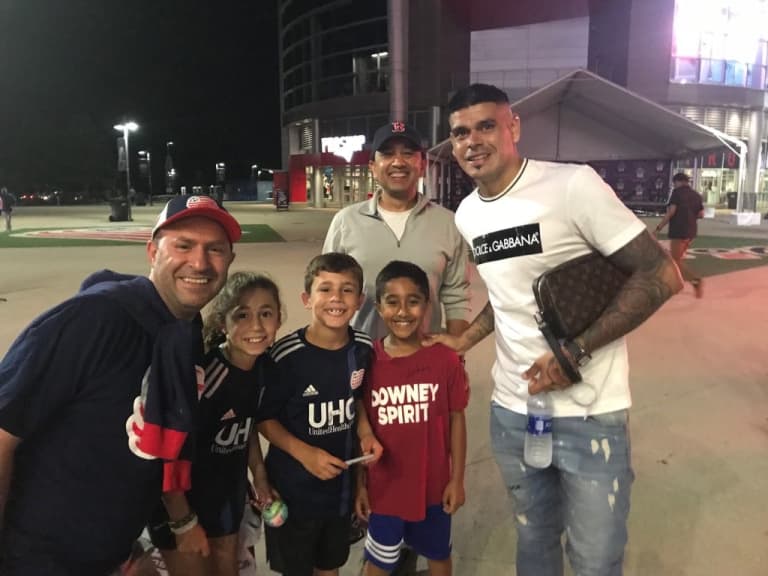
Dr. Choueiri is eagerly anticipating that day, not just because he misses the game, but also because he believes sports will be one of the most powerful forces to bring people back together and restore normalcy once we’ve moved past the worst of the pandemic.
“I think [sports] will be the most important thing,” Dr. Choueiri said. “At least in this country, that’s how my family sees each other – when we go to a sporting event. This is more than sports, it’s a social event. We eat together, we go hungry to Gillette Stadium and we get all this. We drink. We have a beer together.
“This will be very, very important. When will it happen? I think this is bigger than soccer, bigger than Boston – this is a national thing when things have to happen again. But I think once we are there (with sports), then you will know that things are back to normal hopefully.”
When things are back to normal and Dr. Choueiri can once again attend Revolution games with his wife and kids, he’ll have some additional family members in tow. After his in-laws occasionally used his seats in 2019, they decided to get them their own for 2020.
“Hopefully this will be tradition, and my kids will get their kids season tickets,” Dr. Choueiri said. “This is perhaps the beginning of something that will be from one generation to another.”
The concept of teamwork permeates most aspects of life. We see it highlighted most often in professional sports, but the support systems that exist in hospitals and amongst medical professionals are keeping them going through one of the most challenging periods in our recent history.
It’s something that Dr. Choueiri has seen on a daily basis at Dana-Farber, and while he can’t wait to get back to cheering on the Revolution, he’s currently captain of his own team – the one keeping our friends, family, and neighbors safe at a time we need them most.
“It’s amazing how all of us at Dana-Farber – doctors, nurses, researchers, administrators – all of us came together as one family,” Dr. Choueiri said. “It was really humbling to see that.
“It takes a lot of work, but you have to step up in times like this.”
